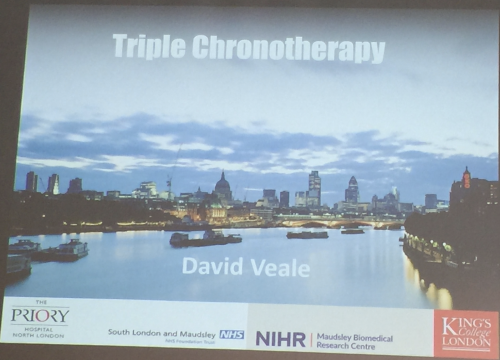Great to have lots of effective choices in our stress management toolbox!
Last updated on 5th June 2025
It's great to have a wide variety of effective choices in our stress management toolbox!

It's great to have a wide variety of effective choices in our stress management toolbox!
Another interesting recent study - The association between vitamin D serum levels, supplementation, and suicide attempts and intentional self-harm - with its abstract reading: "Objectives The purpose of this study is to determine the associations between Vitamin D supplementation, 25(OH) blood serum levels, suicide attempts, and intentional self-harm in a population of veterans in the Department of Veterans Affairs (VA). Methods A retrospective cohort study of US Veterans supplemented with Vitamin D. Veterans with any Vitamin D3 (cholecalciferol) or Vitamin D2 (ergocalciferol) fill between 2010 and 2018 were matched 1:1 to untreated control veterans having similar demographics and medical histories.
"You've got to spread joy up to the maximum. Bring gloom down to the minimum. Otherwise pandemonium ... Liable to walk upon the scene". Bing Crosby sings
"You've got to accentuate the positive. Eliminate the negative. Latch onto the affirmative. Don't mess with Mr In-Between". Bing Crosby sings!
The universe is full of magical things patiently waiting for our wits to grow sharper. Eden Phillpotts
At the recent World Congress of Behavioural & Cognitive Therapies in Berlin, David Veale from King's College & the Maudsley reported on a randomised controlled trial of 'triple chronotherapy' for depression.

David pointed out that depression can come in all kinds of shapes & sizes, and this treatment probably works best in the subtype where circadian rhythms have become desynchronised.
I'm at the '9th World Congress of Behavioural & Cognitive Therapies' in Berlin. As is routine with these kinds of events, the day before is taken up with pre-conference workshops. There are 31 of them! 18 are full-day and the rest half-day. A lot of choice. I've gone for "Reimagining CBT for major depression" with Keith Dobson. The full title includes " ... : using a contextual framework to conceptualize and treat depression."
Poor muscle strength predicts increased vulnerability to both physical & psychological health problems and earlier death, in addition to the contribution of poor aerobic, heart-lung fitness. This is true for both men & women and for all assessed age ranges. Mechanisms underlying these effects are probably multifactorial, including metabolic/biochemical, neurological & psychological factors. Research studies have assessed overall muscular strength in a variety of ways including grip strength, push-ups, chair-stands, and squat weight-lifts. Happily, muscle strengthening interventions can yield major benefits across multiple health domains. Here are a dozen interesting papers addressing these areas published in the last few years:
I read a lot of research. When I find an article of particular interest I download it to my bibliographic database - Endnote - which currently contains well over 27,000 abstracts. I also regularly tweet about emerging research, so following me on Twitter, Facebook or Google+ (click on the relevant icon at the top of this web page) will keep you up to speed with some of what I'm finding interesting. Additionally you can view this highlighted research by visiting Scoop.it (click on the "it!" icon at the top of the page). At Scoop.it, I stream publications into five overlapping topic areas: Cognitive & General Psychotherapy, Depression, Compassion & Mindfulness, Healthy Living & Healthy Aging, and Positive Psychology ...
"And, my friends, in this story you have a history of this entire movement. First they ignore you. Then they ridicule you. And then they attack you and want to burn you. And then they build monuments to you." Nicholas Klein
"Those who do not have the power over the story that dominates their lives - the power to retell it, reexperience it, deconstruct it, joke about it, and change it as times change - truly are powerless because they cannot think new thoughts." Salman Rushdie
I read a lot of research. When I find an article of particular interest I download it to my bibliographic database - Endnote - which currently contains well over 26,500 abstracts. I also regularly tweet about emerging research, so following me on Twitter, Facebook or Google+ (click on the relevant icon at the top of this web page) will keep you up to speed with some of what I'm finding interesting. Additionally you can view this highlighted research by visiting Scoop.it (click on the "it!" icon at the top of the page). At Scoop.it, I stream publications into five overlapping topic areas: Cognitive & General Psychotherapy, Depression, Compassion & Mindfulness, Healthy Living & Healthy Aging, and Positive Psychology.